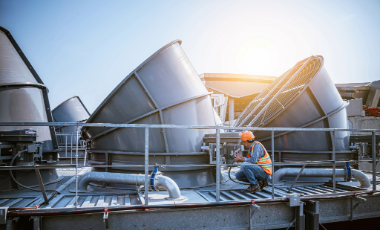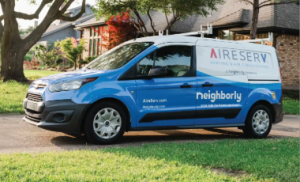Essential HVAC Safety Tips for Homeowners
Understanding the Basics of HVAC Systems
Heating, ventilation, and air conditioning (HVAC) systems are essential for maintaining a comfortable and healthy indoor environment. Understanding the basics of HVAC systems is crucial for homeowners to ensure their proper functioning and safety. HVAC systems consist of various components, including furnaces, air conditioners, ductwork, and thermostats, all working together to regulate temperature, humidity, and air quality.
One important aspect of understanding HVAC systems is knowing how to operate and maintain them efficiently. Homeowners should familiarize themselves with the user manuals provided by manufacturers to learn about the specific features and maintenance requirements of their HVAC systems. Additionally, it is essential to know the location of key components, such as the main electrical panel, gas shut-off valve, and air filters, for easy access during maintenance or emergencies.
Importance of Regular Maintenance and Inspections
Regular maintenance and inspections are vital for the optimal performance and longevity of HVAC systems. Neglecting maintenance can lead to reduced efficiency, increased energy consumption, and even safety hazards. Homeowners should schedule professional HVAC inspections at least once a year to identify any potential issues and ensure that the system is operating safely and efficiently.
During inspections, HVAC technicians will check for leaks, clean or replace air filters, inspect electrical connections, and test system controls. They will also assess the condition of the ductwork and perform any necessary repairs or adjustments. Regular maintenance not only improves the system’s performance but also helps prevent costly breakdowns and extends the lifespan of the HVAC equipment.
Ensuring Proper Ventilation and Air Quality
Proper ventilation and air quality are crucial for maintaining a healthy indoor environment. HVAC systems play a significant role in ensuring adequate ventilation and filtering out pollutants, allergens, and contaminants. Homeowners should pay attention to the following aspects to ensure proper ventilation and air quality:
1. Air Filters: Regularly clean or replace air filters to prevent the buildup of dust, pollen, and other particles that can affect air quality and reduce system efficiency. According to the Environmental Protection Agency (EPA), dirty filters can increase energy consumption by 5% to 15%.
2. Ventilation Systems: Ensure that ventilation systems, such as exhaust fans and air vents, are clean and unobstructed. Proper ventilation helps remove stale air, moisture, and odors from the home, reducing the risk of mold growth and improving indoor air quality.
3. Humidity Control: Maintain appropriate humidity levels in the home to prevent mold and mildew growth. Humidity levels between 30% and 50% are generally recommended for optimal comfort and air quality.
Safety Precautions for DIY HVAC Maintenance
While regular maintenance is essential, homeowners should exercise caution when performing DIY HVAC maintenance tasks. Some safety precautions to consider include:
1. Power Off: Before conducting any maintenance or repairs, ensure that the power to the HVAC system is turned off. This prevents the risk of electric shock or damage to the system.
2. Gas Safety: If your HVAC system operates on natural gas or propane, be cautious when inspecting or repairing gas lines. If you detect a gas leak, immediately evacuate the premises and contact a professional.
3. Proper Tools and Equipment: Use the appropriate tools and equipment for the task at hand. This includes safety goggles, gloves, and insulated tools when working with electrical components.
4. Know Your Limits: While some maintenance tasks can be safely performed by homeowners, it is important to know when to call a professional. Complex repairs or tasks involving refrigerant handling should be left to trained HVAC technicians to avoid potential hazards.
In conclusion, understanding the basics of HVAC systems, regular maintenance and inspections, ensuring proper ventilation and air quality, and taking safety precautions for DIY HVAC maintenance are all essential for homeowners. By following these tips, homeowners can ensure the optimal performance, energy efficiency, and safety of their HVAC systems, creating a comfortable and healthy indoor environment for their families.


